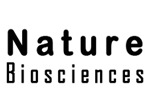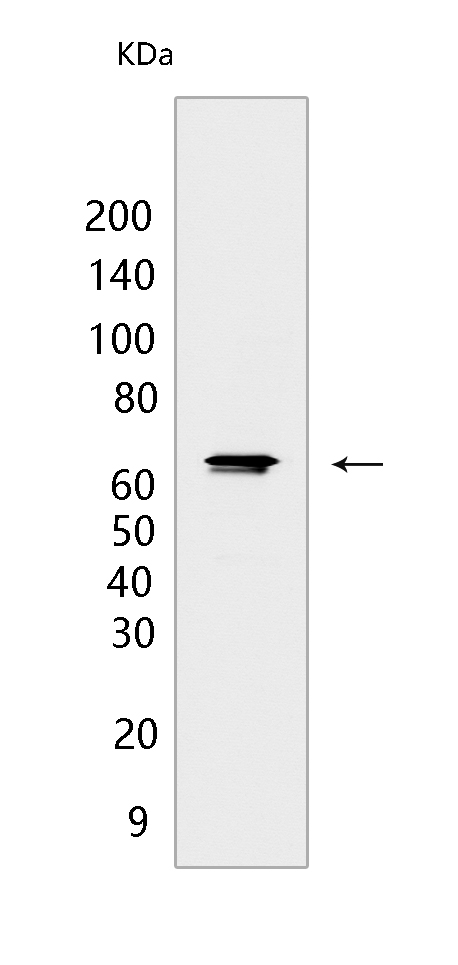P-ATF-2 (T71)/ATF-7 (T53) Rabbit pAbCat NO.: A92663
Western blot(SDS PAGE) analysis of extracts from 3T3 treated with Anisomycin (25 μg/ml 30 min).Using P-ATF-2 (T71)/ATF-7 (T53) Rabbit pAb at dilution of 1:1000 incubated at 4℃ over night.
Product information
Protein names :ATF2,CREB2,CREBP1,ATF2_HUMAN,Cyclic AMP-dependent transcription factor ATF-2
UniProtID :P15336
MASS(da) :54,537
MW(kDa) :65,75 kDa
Form :Liquid
Purification :peptide affinity chromatography
Host :Rabbit
Isotype :IgG
sensitivity :Endogenous
Reactivity :Human,Mouse,Rat
- ApplicationDilution
- 免疫印迹(WB)1:1000-2000
- The optimal dilutions should be determined by the end user
Specificity :Antibody is produced by immunizing animals with a synthetic peptide at the sequence of Human Phospho-ATF-2 (Thr71)/ATF-7 (Thr53)
Storage :Antibody store in 10 mM PBS, 0.5mg/ml BSA, 50% glycerol. Shipped at 4°C. Store at-20°C or -80°C. Products are valid for one natural year of receipt.Avoid repeated freeze / thaw cycles.
WB Positive detected :3T3 treated with Anisomycin (25 μg/ml 30 min)
Function : Transcriptional activator which regulates the transcription of various genes, including those involved in anti-apoptosis, cell growth, and DNA damage response. Dependent on its binding partner, binds to CRE (cAMP response element) consensus sequences (5'-TGACGTCA-3') or to AP-1 (activator protein 1) consensus sequences (5'-TGACTCA-3'). In the nucleus, contributes to global transcription and the DNA damage response, in addition to specific transcriptional activities that are related to cell development, proliferation and death. In the cytoplasm, interacts with and perturbs HK1- and VDAC1-containing complexes at the mitochondrial outer membrane, thereby impairing mitochondrial membrane potential, inducing mitochondrial leakage and promoting cell death. The phosphorylated form (mediated by ATM) plays a role in the DNA damage response and is involved in the ionizing radiation (IR)-induced S phase checkpoint control and in the recruitment of the MRN complex into the IR-induced foci (IRIF). Exhibits histone acetyltransferase (HAT) activity which specifically acetylates histones H2B and H4 in vitro (PubMed:10821277). In concert with CUL3 and RBX1, promotes the degradation of KAT5 thereby attenuating its ability to acetylate and activate ATM. Can elicit oncogenic or tumor suppressor activities depending on the tissue or cell type..
Tissue specificity :Ubiquitously expressed, with more abundant expression in the brain.
Subcellular locationi :Nucleus. Cytoplasm. Mitochondrion outer membrane.
IMPORTANT: For western blots, incubate membrane with diluted primary antibody in 1% w/v BSA, 1X TBST at 4°C overnight.


